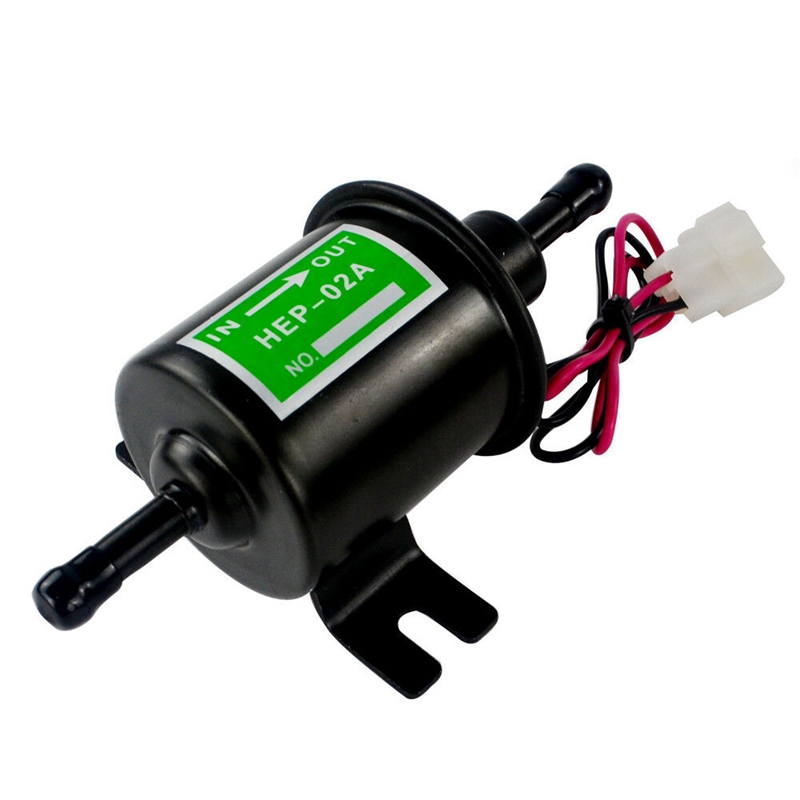The Battle of Efficiency: Is Electric Fuel Pump Better than Mechanical?
In the world of automotive engineering, the debate between electric fuel pumps and mechanical fuel pumps has been ongoing for years. Both types of fuel pumps serve the same purpose - to deliver fuel from the tank to the engine. However, they differ significantly in terms of design, performance, and efficiency. In this article, we will delve into the intricacies of electric fuel pumps and mechanical fuel pumps, comparing their advantages and disadvantages to determine which one reigns supreme in terms of efficiency.
- Efficiency and Performance:
Electric Fuel Pump:
Electric fuel pumps are known for their superior efficiency and performance. They are designed to deliver a consistent and precise amount of fuel to the engine, ensuring optimal combustion and power output. With their advanced technology, electric fuel pumps can maintain a constant fuel pressure regardless of engine speed or load conditions. This results in improved fuel economy, smoother acceleration, and reduced emissions.
Mechanical Fuel Pump:
On the other hand, mechanical fuel pumps have been a staple in the automotive industry for decades. They rely on the engine's mechanical motion to operate, which can lead to fluctuations in fuel pressure. While mechanical fuel pumps are generally reliable, their performance may suffer under high-demand situations, such as during rapid acceleration or at high engine speeds. This can result in fuel starvation or flooding, leading to decreased efficiency and potential engine damage.
- Installation and Maintenance:
Electric Fuel Pump:
When it comes to installation and maintenance, electric fuel pumps offer several advantages. They are typically easier to install, requiring less space and fewer components compared to mechanical fuel pumps. Electric fuel pumps also have a longer lifespan and require less frequent maintenance. However, in the event of a failure, electric fuel pumps may be more expensive to replace.
Mechanical Fuel Pump:
Mechanical fuel pumps, while more complex in design, have the advantage of being less expensive to replace. However, they require regular maintenance and periodic adjustments to ensure optimal performance. Additionally, the installation process for mechanical fuel pumps can be more time-consuming and may require professional expertise.
- Reliability and Durability:
Electric Fuel Pump:
Electric fuel pumps are generally considered more reliable and durable than their mechanical counterparts. They are less prone to wear and tear, as they do not have any moving parts that can fail over time. Electric fuel pumps also have built-in safety features, such as pressure regulators and fuel filters, which help protect the engine from damage caused by contaminants or excessive pressure.
Mechanical Fuel Pump:
While mechanical fuel pumps have a long history of reliability, they are more susceptible to wear and tear due to their mechanical nature. The constant movement of internal components can lead to eventual failure, requiring replacement. However, with proper maintenance and regular inspections, mechanical fuel pumps can still provide reliable performance.
Conclusion:
In the battle of efficiency, electric fuel pumps emerge as the clear winner. Their advanced technology, consistent fuel delivery, and improved performance make them the preferred choice for modern vehicles. While mechanical fuel pumps have their merits, they struggle to match the efficiency and reliability of electric fuel pumps. Whether it's for fuel economy, engine performance, or overall longevity, electric fuel pumps prove to be the superior option in today's automotive landscape.
